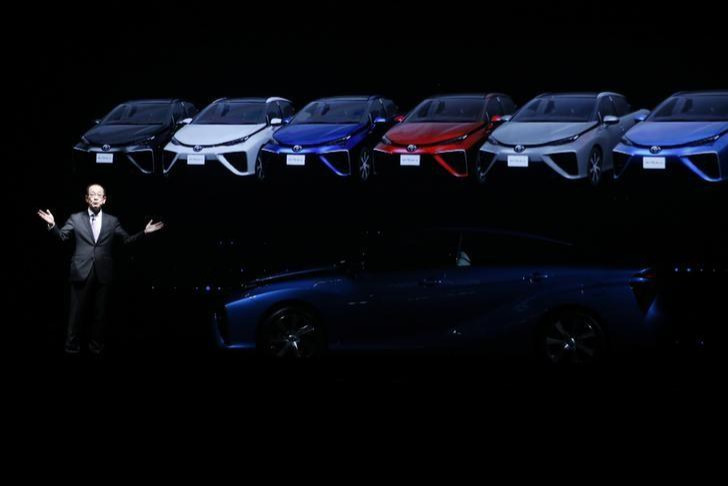Toyota engineer claims battery-powered electric vehicles have no future

A senior Toyota engineer has said that battery-powered electric vehicles will never be practical, even if technological advances allow for more efficient charging.
Yoshikazu Tanaka, Toyota's deputy chief engineer, outlined why the Japanese car manufacturer was instead betting on hydrogen fuel-cell technology as a serious alternative to conventional cars.
"If you were to charge a car in 12 minutes for a range of 500 km (310 miles), for example, you're probably using up electricity required to power 1,000 houses," Tanaka told Reuters. "That totally goes against the need to stabilise electricity use on the grid."
Tanaka didn't dismiss electric vehicles (EVs) entirely, but said their use in the future would be limited to short journeys.
How does hydrogen fuel-cell technology work?
Hydrogen fuel cells extract energy by converting hydrogen gas into electricity. It is a zero-emission alternative to fossil fuels as the only bi-product is water vapour.
Tanaka said: "Toyota isn't denying the benefits of EVs. But we think the best way to use them is to charge them at night (to avoid peak power consumption hours), and use them for short distances during the day."
In 2016 Toyota is planning to roll out the Mirai - the first ever mass produced hydrogen fuel-cell vehicle (FCV).
The company still has several obstacles to overcome if the Mirai is to be a commercial success. The two biggest challenges are a lack of fueling infrastructure and a high cost of production, requiring significant government subsidies for FCVs to be affordable.
As technology advances these issues are expected to be less of an issue and already steps are being taken to make FCVs commercially viable. A new fueling station has been set up in Japan that extracts hydrogen from sewage in order to be used in FCVs like the Mirai.
"Remember 'Back to the Future'?" Tanaka said. "In that movie, a car from 30 years in the future comes back to the present - the year 1985. The Mirai doesn't fly, but this year, 2015, is that future."
© Copyright IBTimes 2025. All rights reserved.






















